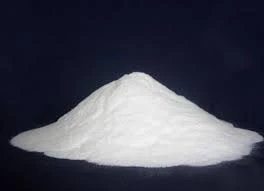Understanding Cellulose Thickener Properties, Uses, and Benefits
Cellulose thickeners are a group of compounds derived from cellulose, which is a natural polymer found in the cell walls of plants. These thickeners play a crucial role in various industries—including food, cosmetics, pharmaceuticals, and paints—due to their ability to enhance texture, stability, and viscosity in a multitude of formulations. This article explores the properties, applications, and benefits of cellulose thickeners in greater detail.
Properties of Cellulose Thickeners
Cellulose thickeners are known for their unique ability to absorb water and swell, thereby increasing the viscosity of solutions. This process occurs because cellulose molecules can form hydrogen bonds with water, allowing them to retain moisture effectively. Depending on the degree of modification and the source of cellulose, these thickeners can exhibit varying viscosity levels and functional properties.
Common types of cellulose thickeners include hydroxypropyl cellulose (HPC), methylcellulose (MC), and carboxymethyl cellulose (CMC). These variants are modified to enhance their performance in specific applications. For instance, methylcellulose is heat-sensitive, meaning that its viscosity changes when heated, making it ideal for applications such as cooking and baking. On the other hand, carboxymethyl cellulose is water-soluble and provides excellent thickening and stabilizing properties in liquid formulations.
Uses of Cellulose Thickeners
One of the most prominent applications of cellulose thickeners is in the food industry. They are commonly used as food additives to improve the texture and mouthfeel of products. For instance, in salad dressings, cellulose thickeners help to create a uniform texture and prevent separation of ingredients. In ice creams and frozen desserts, they enhance creaminess while preventing ice crystal formation.
In the cosmetic industry, cellulose thickeners serve as stabilizers in creams, lotions, and gels. They provide a desirable viscosity and improve the spreadability of these products on the skin. Additionally, cellulose thickeners are used in personal care items like shampoos and conditioners to achieve the ideal consistency and enhance performance without compromising stability.
cellulose thickener

The pharmaceutical sector benefits from cellulose thickeners as well, particularly in the formulation of oral suspensions and topical ointments. Their ability to create stable suspensions is crucial for ensuring the effective delivery of active pharmaceutical ingredients. Furthermore, cellulose thickeners can also be used as binding agents in tablets and capsules.
Benefits of Cellulose Thickeners
One of the main advantages of cellulose thickeners is their natural origin. Being derived from plant materials, they are generally recognized as safe (GRAS) for consumption, making them suitable for use in various food products. This natural origin appeals to health-conscious consumers seeking cleaner label products.
Another benefit is their versatility. Cellulose thickeners can be modified to suit specific needs, allowing manufacturers to customize their properties based on the application. This flexibility means that they can be used across diverse industries, making them an indispensable ingredient in many formulations.
In addition to improving texture and stability, cellulose thickeners can also enhance the shelf-life of products by preventing separation and sedimentation. This is especially important in the cosmetic and food industries, where product consistency directly impacts consumer satisfaction.
Furthermore, cellulose thickeners contribute to the reduction of calories in food formulations. When used as a fat replacer, they can help achieve the desired mouthfeel and texture without the added calories from fats. This characteristic is increasingly valuable in the development of healthier food options.
Conclusion
Cellulose thickeners are versatile and essential ingredients in many industries. Their unique properties enhance the texture, stability, and performance of various products, making them invaluable in food, cosmetics, and pharmaceuticals. As the demand for natural and clean-label products continues to rise, cellulose thickeners are poised to play an integral role in meeting consumer expectations while providing manufacturers with reliable and effective solutions. Understanding and harnessing the potential of cellulose thickeners is vital for anyone involved in product formulation and development.
-
The Application and Significance of Construction RdpNewsMay.19,2025
-
Industrial Grade HpmcNewsMay.19,2025
-
Building Coating Adhesive Building Coating Adhesive HpmcNewsMay.19,2025
-
Application Of Hpmc For Detergent For Detergent In DetergentsNewsMay.19,2025
-
Application Of Hpmc Cellulose In Cement-Based MaterialsNewsMay.19,2025
-
Application Of High Quality Hpmc For Construction In The Field Of ConstructionNewsMay.19,2025




